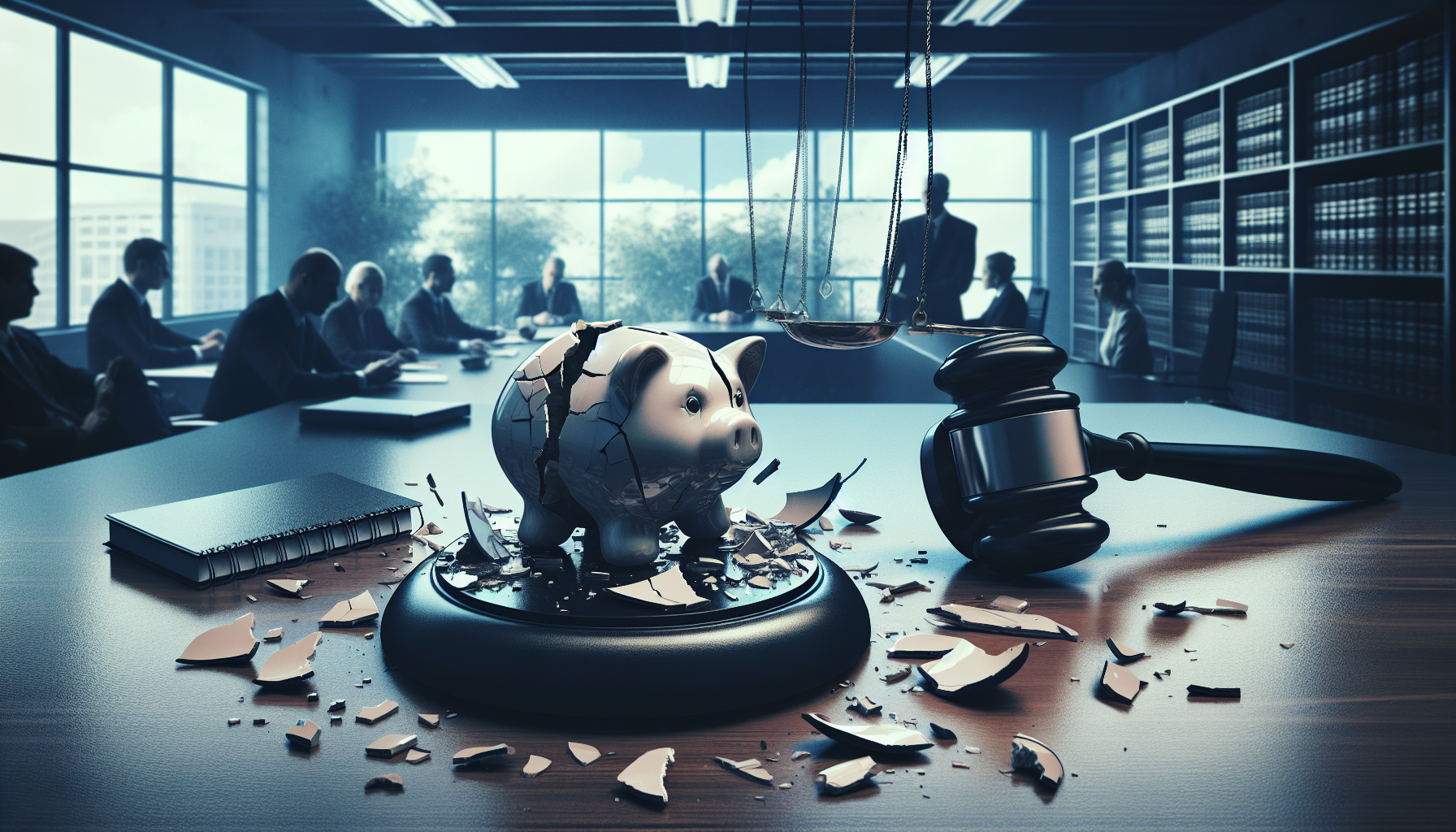Imagine working hard throughout the year, meeting your targets, and anticipating your annual bonus as a reward for your efforts. Now imagine the disappointment of not receiving that bonus, despite being promised it. This is exactly what employees of X, formerly known as Twitter, are going through. A federal judge has recently rejected X’s attempt to dismiss a lawsuit filed by former employees over allegations of unpaid bonuses. The lawsuit claims that after Elon Musk acquired X in 2022, the company failed to honor its commitment to provide employees with their annual bonuses. The judge ruled that the case against X was plausible and that California law applies when determining the enforceability of contracts. This legal battle shines a light on the ongoing controversies surrounding the company, even during the holiday season.
X Faces Lawsuit Over Allegations of Unpaid Bonuses
As the holidays approach, X, formerly known as Twitter, finds itself embroiled in a controversy. A federal judge has dismissed X’s attempt to dismiss a lawsuit alleging its failure to pay promised bonuses. The lawsuit was filed by former Senior Director of Compensation Mark Schobinger on behalf of all former and current X employees who had their 2022 bonuses withheld. The case has been deemed plausible by US District Judge Vince Chhabria and will proceed.
Background of the Lawsuit
The lawsuit stems from allegations that X failed to honor its commitment to give employees their annual bonuses following its acquisition by Elon Musk in October 2022. X executives had assured employees that 2022 bonuses would be paid at 50% of the target, and these promises were reiterated after Musk’s takeover. However, X allegedly failed to fulfill its commitment, leading to Mark Schobinger’s departure from the company in May. Schobinger cited X’s failure to pay promised bonuses as one of the reasons for his departure.

Federal Judge Rejects X’s Attempt to Dismiss Lawsuit
In response to X’s attempt to have the lawsuit dismissed, US District Judge Vince Chhabria ruled that the case against X was plausible and should proceed. Chhabria declared that Twitter’s offer to pay a bonus constituted a binding contract under California law. X had argued that an oral promise should not be legally binding and that the trial should be conducted in Texas. However, Judge Chhabria ruled that California law applies when determining the enforceability of contracts.
California Law Applies in Determining Enforceability of Contracts
Judge Chhabria’s ruling affirms that California law applies in determining the enforceability of contracts in this case. Under California law, oral promises can be considered binding contracts if they meet certain criteria. X’s assurance to pay a bonus to its employees may fall under these criteria, making it legally enforceable. This ruling emphasizes X’s obligations under California law and strengthens the case against the company.

Concerns Raised by Employees About Compensation and Bonuses
The lawsuit sheds light on the concerns raised by X employees regarding their compensation and annual bonuses. Following Elon Musk’s announcement of the acquisition in April, employees were assured by X executives that their 2022 bonuses would be paid at 50% of the target. These promises were reiterated after Musk’s takeover. However, X allegedly failed to fulfill its commitment, leading to dissatisfaction among employees and the filing of the lawsuit.
Schobinger’s Departure from X
Mark Schobinger’s departure from X is directly linked to the unpaid bonuses issue. In his complaint, Schobinger stated that he left the company due to “Twitter’s reneging on various promises it had made to employees, including its failure to pay promised bonuses.” This departure highlights the impact of unpaid bonuses on employees and their decision to leave the company. Schobinger’s lawsuit represents not only his grievances but also the grievances of other current and former X employees.
Elon Musk’s Criticism of President Biden
Elon Musk has been vocal about his criticism of President Biden’s treatment of Tesla. Musk denounced Biden’s absence from the EV summit and his recognition of GM as an electric vehicle leader. Musk claimed that most of the Democratic Party is controlled by unions, implying that they carry more weight than environmentalists. Musk’s criticism of President Biden aligns with his desire for a moderate 2024 presidential contender.
Musk’s Desire for a Moderate 2024 Presidential Contender
Elon Musk has expressed his dissatisfaction with the Biden administration and his desire for a moderate presidential candidate in 2024. Musk, who previously supported Barack Obama, pledged to vote for GOP nominee Ron DeSantis in November 2022. This shift in support reflects Musk’s frustration with the current political landscape and his belief that a moderate candidate would better serve the country’s interests.
Elon Musk’s Response to Concerns about Tesla’s Autonomous Features
Elon Musk took the opportunity to address concerns about Tesla’s autonomous features following a scene in the Netflix film “Leave the World Behind.” The scene depicted hacked Tesla Model 3s attacking in full self-driving mode, raising worries about the safety and reliability of Tesla’s autonomous capabilities. Musk responded by emphasizing Tesla’s post-apocalyptic resiliency, stating that Teslas can charge from solar panels even in a world without gasoline.
Tesla’s Self-Driving Capabilities
Musk’s response to concerns about Tesla’s autonomous features highlights the company’s confidence in its self-driving capabilities. Musk clarified that Tesla’s self-driving features only work when a human is in the car, debunking the idea of an autonomous army of Model 3s. This reassurance emphasizes Tesla’s commitment to safety and its belief in the resiliency of its autonomous technology.
Tesla’s Supercharger Network to be Opened to GM and Ford EV Owners
In a surprising move, Tesla has announced its intention to open its Supercharger network to GM and Ford EV owners. This partnership aims to expand charging infrastructure and make electric vehicle charging more accessible. The timeline for the opening of the Supercharger network to GM and Ford EV owners has yet to be determined. This collaboration signifies a shift towards cooperation in the electric vehicle industry and a focus on supporting the growth of EV adoption.
In conclusion, X, formerly known as Twitter, is currently facing a lawsuit over allegations of unpaid bonuses. The lawsuit was filed by former employees and is supported by a federal judge’s ruling that the case is plausible and should proceed. California law applies in determining the enforceability of contracts, further strengthening the case against X. Concerns raised by employees about compensation and bonuses highlight the impact of X’s actions on its workforce. Elon Musk’s criticism of President Biden and his desire for a moderate 2024 presidential contender demonstrate his dissatisfaction with the current political landscape. Musk’s response to concerns about Tesla’s autonomous features reinforces the company’s commitment to safety and its belief in the resiliency of its technology. Finally, Tesla’s decision to open its Supercharger network to GM and Ford EV owners reflects a collaborative approach to expanding charging infrastructure.




